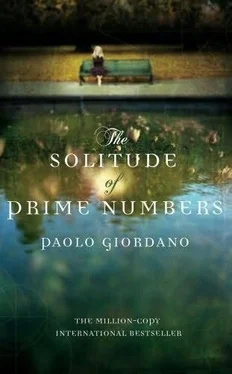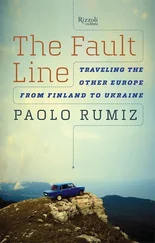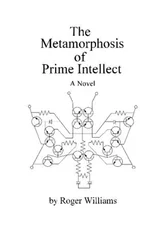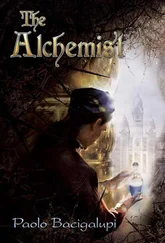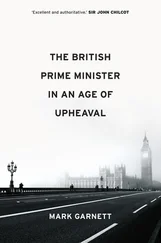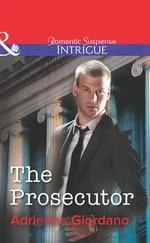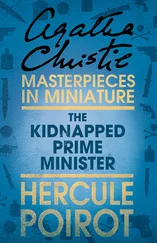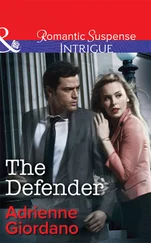Mattia turned the key in the front door. He had learned that by turning the handle toward himself and pressing his palm over the keyhole, he could eliminate almost entirely the metallic click of the lock. With the bandage on it was even easier.
He slipped into the hallway, put the keys back in again, and repeated the operation from inside, like a burglar in his own home.
His father was already home, earlier than usual. When he heard him raise his voice he froze, unsure whether to cross the sitting room and interrupt his parents' conversation or go out again and wait until he saw the living room light go out from the courtyard.
"I don't think it's right," his father concluded with a note of reproach in his voice.
"Right," Adele shot back. "You'd rather pretend nothing is wrong, act as if nothing strange were going on."
"And what's so strange?"
There was a pause. Mattia could picture his mother lowering her head and wrinkling up one corner of her mouth as if to say it's pointless trying to talk with you.
"What's so strange?" she repeated emphatically. "I don't…"
Mattia kept a step back from the ray of light that spilled from the sitting room into the hall. With his eyes he followed the line of shadow from the floor to the walls and then to the ceiling. He realized that it formed a trapezoid, only one more trick of perspective.
His mother often abandoned her sentences halfway through, as if she had forgotten what she was going to say as she was saying it. Those interruptions left bubbles of emptiness in her eyes and in the air and Mattia always imagined bursting them with a finger.
"What's strange is that he stuck a knife in his hand in front of all his classmates. What's strange is that we were convinced those days were over but we were wrong once again," his mother went on.
Mattia had no reaction when he realized that they were talking about him, just a mild sense of guilt at eavesdropping on a conversation he wasn't supposed to hear.
"That's not reason enough to go and talk to his teachers without him," his father said, but in a more moderate tone. "He's old enough to have the right to be there."
"For God's sake, Pietro," his mother exploded. She never called him by name. "That's not the point, don't you understand? Will you stop treating him as if he were-"
She froze. The silence stuck in the air like static electricity. A slight shock made Mattia's back contract.
"As if he were what?"
"Normal," his mother confessed. Her voice trembled slightly and Mattia wondered if she was crying. Then again, she cried often since that afternoon. Most of the time for no reason. Sometimes she cried because the meat she had cooked was stringy or because the plants on the balcony were full of parasites. Whatever the reason, her despair was always the same. As if, in any case, there were nothing to be done.
"His teachers say he has no friends. He only talks to the boy who sits next to him and he spends the whole day with him. Boys his age go out in the evening, try to hook up with girls-"
"You don't think he's…" his father interrupted. "Well, you know…"
Mattia tried to complete the sentence, but nothing came to mind.
"No, that's not what I think. Maybe I wish that's all it was," said his mother. "Sometimes I think that something of Michela ended up in him."
His father let out a deep, loud sigh.
"You promised not to talk about that anymore," he said, vaguely irritated.
Mattia thought of Michela, who had disappeared into thin air. But only for a fraction of a second. Then he let himself be distracted by the faint image of his parents, who, he discovered, were reflected in miniature on the smooth, curved surfaces of the umbrella stand. He started scratching his left elbow with his keys. He felt the joint twitching from one tooth to the next.
"Do you know what really makes me shiver?" said Adele. "All those high grades he gets. Always the highest. There's something frightening in those grades."
Mattia heard his mother sniff, once. She sniffed again, but now it sounded as if her nose were pressed up against something. He imagined his father taking her in his arms, in the middle of the living room.
"He's fifteen," said his father. "It's a cruel age."
His mother didn't reply and Mattia listened to those rhythmic sobs rising to a peak of intensity and then slowly ebbing, finally growing silent again.
At that point he walked into the living room. He closed his eyes slightly as he entered the beam of light. He stopped two steps away from his hugging parents, who looked at him in alarm, like two kids caught necking. Stamped on their faces was the question, how long had he been out there?
Mattia looked at a point midway between them. He said, simply, I do have friends, I'm going to a party on Saturday. Then he continued toward the hall and disappeared into his room.
The tattoo artist had eyed suspiciously first Alice and then the woman with the too dark skin and the frightened expression whom the girl had introduced as her mother. He didn't believe it for a second, but it was none of his business. He was used to tricks of that kind, and he was used to capricious teenage girls. They were getting younger and younger: this one couldn't be as much as seventeen, he thought. But he certainly wasn't in a position to refuse a job for a question of principle. He'd shown the woman to a chair, and she'd sat down and hadn't said another word. She had gripped her purse tightly in her hands, as if ready to leave at any moment, and looked everywhere except in the direction of the needle.
The girl hadn't flinched. He had asked does it hurt, because that's something you have to ask, but she had said no, no through clenched teeth.
He had recommended that she keep the gauze on for at least three days and to clean the wound morning and evening for a week. He had given her a jar of Vaseline and stuffed the money in his pocket.
Back home in the bathroom, Alice took off the white tape that held the bandage on. Her tattoo had been in existence for only a few hours and she had already peeked at it a dozen times. Each time she looked, a bit of the excitement dispersed, like a pool of shimmering water that evaporates beneath the August sun. This time she thought only of how red her skin had turned, all the way around the design. She wondered if her skin would ever regain its natural color and for a moment her throat tightened with panic. Then she banished that stupid anxiety. She hated the fact that her every action always had to seem so irremediable, so definitive. In her mind she called it the weight of consequences, and she was sure that it was another awkward piece of her father that had wormed its way into her brain. How she longed for the uninhibitedness of kids her age, their vacuous sense of immortality. She yearned for all the lightness of her fifteen years, but in trying to grasp it she became aware of the fury with which the time at her disposal was slipping away. The weight of consequences was becoming more and more unbearable and her thoughts began whirling faster and faster, in ever smaller circles.
She had changed her mind at the last moment. That was what she had said to the young man who had already turned on the whizzing machine and was bringing the needle to her belly: I've changed my mind. Unsurprised, he had asked her don't you want to do it anymore? Alice had said yes I want to. But I don't want a rose. I want a violet.
The tattooist had looked at her, puzzled. Then he had confessed that he didn't exactly know what a violet looked like. It's kind of like a daisy, Alice had explained, only with three petals at the top and two at the bottom. And it's violet in color. The tattooist had said okay and set to work.
Читать дальше
